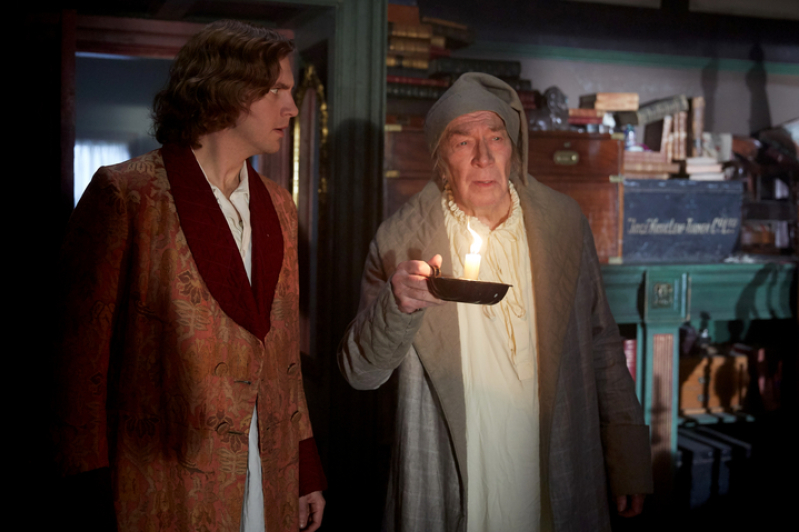
"The Man Who Invented Christmas," a charming, family-friendly drama hitting theaters later this month, recounts the magical journey that led to the creation of Ebenezer Scrooge (Christopher Plummer), Tiny Tim and other classic characters from A Christmas Carol.
Directed by Bharat Nalluri, the film gives viewers a behind-the-scenes look at how Charles Dickens (Dan Stevens) drew from real-life events and his vivid imagination to write the timeless tale -- in just six weeks. Dickens overcame a severe case of writer's block to produce A Christmas Carol, which became an overnight sensation and forever changed the Christmas season.
"Culturally, Christmas had fallen out of favor," Stevens told The Gospel Herald at a press junket in New York City. "This was a fairly religious society, but it was a minor religious festival, even in the Christian calendar. England had also had a run of very bleak winters, which really beat people down over the course of 7 or 8 years. Dickens found something in that mid-winter celebration that was very convenient for his tale, that idea or redemptive hope in the very darkest hour of the year that's very universal."
The film examines how Dickens himself was the surprising inspiration for the story's most famous character, Ebenezer Scrooge. At just 11 years old, he was forced to work in a factory after his father was sent to a debtor's prison, an experience that left a bitter imprint on his character.
"Dickens...was actually quite a complicated human being, who had, in turns a great sense of humor and a childish, silly side who really appreciated joy and goodwill, and then by other turns was quite depressive and dark. There's that in almost all of his work, particularly in A Christmas Carol," Stevens explained.
Still, the book's underlying themes - generosity, compassion, and goodwill to all men - stemmed from Dickens' concern for the poor and oppressive child labor laws, issues he saw society as largely ignoring.
"Dickens was a Christian, and some of his moral values were instilled from that," said Nalluri. "The genius of that, and the reason his books are translated across the world is because at the end of it all, they're universal human truths, how we should all work together as a society. He gets to the bottom of that. It's great fun and so compelling in terms of storytelling, but underneath it, he's clicking and clocking society to think about other things, to think about other's situations."
Of course, the story's overarching theme is redemption; Scrooge is perhaps the most famous example of an antagonist-turned-hero in literary history.
"Dickens taps into something that's both Christian and also universal; there's something about that celebration in the winter solstice that appealed to the Christian fathers as much as Dickens, that the very darkest moment the light will return. It's a beautiful story of redemption, and we all want to be better people than we are," said Stevens.
"He really held to that hope, and there's great humanity in his writing and a hope that those human values with prevail."
The film also illustrates how many of the Christmas traditions we celebrate over 150 years later - Christmas trees, gift exchanging and giving to the poor - were introduced in the Dickens' classic.
"It's a joyous, fun piece and it's a really enjoyable piece, and that's what Dickens did - he tried to make you enjoy it without making you realize he had something else to say about us as human beings," said Nalluri. "We live in interesting times, and it's good to be reminded of these things. I can see why people revisit this. I think genuinely, people are good, we're all driven to goodness - that's how we survive as society."
He added, "Every now and then it can feel a little bleak, but I think that's the genius of Dickens, he allowed you to cling onto that hope."
"The Man Who Invented Christmas" opens nationwide on November 22nd. The film is rated PG.






